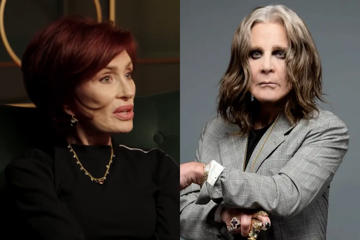What It Really Means To Have Your Country Invaded
"This thing of boxing whole cultures and religions up because of extreme minorities isn't just sad, it's absurd."
As the post-election, anti-Islam clamour bellows across the airwaves and social media and we find ourselves subjected to an uptick in hysterical populist rancour about Australia being taken over by this group or that, it is perhaps prudent to ponder how Australia's First Nation people view the idea of 'our country'.
Cue the nation's foremost Indigenous ambassadors, Bangarra Dance Theatre. Their latest triple bill, the aptly monikered OUR land people stories not only brings Aboriginal culture to life in the now, but reminds us that the very idea of Australia is a contingent construct, an amalgam of history, habit and not a little hubris.
Indeed dancer and choreographer Jasmin Sheppard — whose short work Macq features in the OUR Land people stories troika — is more than prepared to stare down the bellicose right. "This thing of boxing whole cultures and religions up because of extreme minorities isn't just sad, it's absurd," she declares. "I mean, we don't go labelling every single Catholic as a paedophile, do we?"
"I mean, we don't go labelling every single Catholic as a paedophile, do we?"
Yet, in one way, the febrile timbre of the so-called 'debate' over Islam and immigration creates a more focused context for the work Bangarra do. As Sheppard explains, "We have people's voices — often the racist or the intolerant voices, the ones that don't want to understand difference — that are the loudest, or seem to be given the platform to speak now. So, I feel very lucky having the opportunity to speak of the Indigenous experience, but also I think that Aboriginal and Torres Strait Islander people know what it's like to be fringe dwellers. We know what it's like not to be welcomed into this 'Australia' that's been formed."
Don't miss a beat with our FREE daily newsletter
First performed in 2013, Macq has now been revived to coincide with the 200th anniversary of the March of Macquarie, in which colonial troops massacred the Dharawal people near what is now Appin, south of Sydney.
However, Sheppard's work is less blood-soaked retelling and more about the Man. As the last of the early autocrats to govern New South Wales, Scotsman Lachlan Macquarie is a legendary figure in Australia's post-settlement folklore. Hailed on his headstone as the 'Father of Australia', Macquarie's diaries (which Sheppard used as source material for her work) reveals a man much more interesting than the flag wavers care to admit. A heavy drinker and syphilitic, Sheppard describes him as a "challenged and maybe conflicted Governor."
It all makes for powerful storytelling, as Sheppard duly outlines. "I don't think he was all bad, even if he definitely got it wrong in the end; but he may have wanted it to be a peaceful existence between the settlers and the Aboriginal people. He had quite a few close friends from the Aboriginal community around Sydney and some of them passed away in the massacre."
For Jasmin Sheppard and Bangarra as a whole, all this looking back is also a way of moving forward. "The wonderful thing about culture is that it never dies. It can withstand the harshest conditions," she concludes. When Macq plays alongside new works from company director Stephen Page and 'the Rileys', choreographers Daniel and Beau, it will perhaps focus some of us on what it really means to have your country invaded and changed under your very nose.







